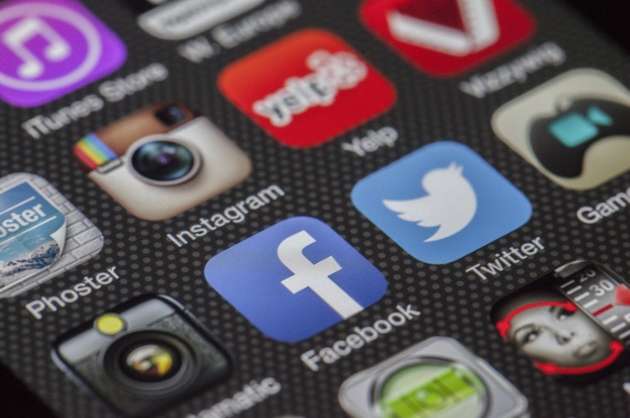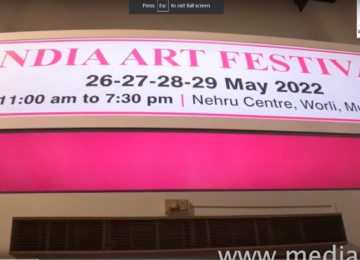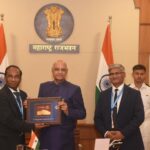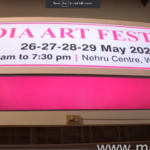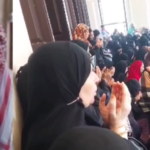By Dr. S S Mantha
(Former Chairman AICTE and Chancellor KL University)
Mumbai, May 30
Our lives are ruled by social media today. Virtually everything between rising up and going to sleep is either Instagram, LinkedIn, Facebook or WhatsApp. As a consequence, social life is destroyed for many of us in several ways. Count them if they can put back a semblance of sanity back in our lives. Spending too much or wasting it, playing games on social media and getting addicted to it, or falling prey to the Update Syndrome or even neglecting family responsibilities, or depending on Online friends are all we are familiar with. What however they do is reduce attention span, reduce our productivity, subject us to “Fear of missing out” FOMO syndrome, cause infidelity, disturb privacy, cause health issues, cause a negative impact on academics and even subject us to dangers of cybercrime and bullying.
In all those social media platforms at our service, WhatsApp takes the cake for it is a powerful distributor of “fake news” and conspiracy theories, though it is an excellent tool for facilitating genuinely conspiratorial behaviour too. Don’t some conspiracies, turn out to be true? We forward messages from one group to another. The group size was recently limited to 100 in response to Covid-19-related misinformation. It was later increased to 256. It may be a small number to feel exclusive, but if 256 people forward a message to another 256 people, 65,536 will have received it. The chain may even reach everyone in a matter of minutes. Such is the strength of the messaging service.
Facebook owns WhatsApp. There are millions of groups around the world who exchange text messages, data, images and videos. Memes, a combination of image macros with a catchphrase are supposed to spread humour but have spread more derision and sarcasm than anything else. Are the private groups circulating ever more information and disinformation to discredit public officials and public information, alienating us from democratic values? Are these used as information weapons? The so-called information is some authentic, but most times either false, concocted or plain gibberish. Anything and everything seem to be peddled as gospel truth, even attributed to credible names who may not even know the damage caused to their credibility. A recent US reluctance to part with medical supplies to India and the turnaround a few days later, was quickly played out as the result of India’s macho policies. Even conspiracy theories take birth on multiple groups of WhatsApp.
How often have we seen group chats manufacture threats and injustices out of thin air? One participant starts speculating that they are being let down or targeted by some institution or rival group. It could be a public service, business or cultural community. Now a second participant agrees. It now becomes risky for anyone else to defend the institution or group in question. If one tries, immediately a new enemy and a new resentment is born. Within no time, the warnings and denunciations coming from within the group take on a level of authenticity that cannot be matched by the entity that is now the object of derision. For all that matters, the originator of the news may have had a bad day in office. However, what of the damage done?
One particularly interesting theory that made the rounds was about the rollout of 5G, and its mobile phone masts as responsible for spreading the disease across several countries. People even set fire to 5G masts in some countries like UK. No one cared to understand that 5G originated long before Covid-19. Fake news scandals and incendiary messaging that have fuelled many bitter fights among political parties and even friends and relatives is only known too well. Even riots are routinely reported to rumours circulating on WhatsApp. If Facebook is the initiator, WhatsApp becomes the perpetrator and vice versa. Is WhatsApp an unusually effective vehicle for sowing distrust in public institutions and processes? Is there a risk of pinning too much blame for complex political crises on an inert technology? Is it time to explore the new challenges, as much as the opportunities? Is the social media really inhospitable today?
The reach of the social media platforms is enormous. As in April 2021, WhatsApp has over two billion active monthly users spread in 180 countries, Out of that number, over 340 million users are in India alone, the largest for any country. Facebook has 2.8 billion monthly active users. Facebook Messenger has around 1.3 billion monthly active users and YouTube has a potential advertising reach of 2.291 billion to Twitter’s reach of roughly 396 million. In India, YouTube users exceed 450 million, Facebook has around 41o Million, Instagram has 210 Million, while Twitter has the least number of users, 15 Million.
Into one year of pandemic, WhatsApp around the world had grown by 50%. WhatsApp, seen as something between email, Facebook and SMS, is the prime conduit through which a deluge of news, memes and mass anxiety travels. The Ministry of Information and Broadcasting has sought ways of regulating WhatsApp content, though this has led to new controversies about government infringement on civil liberties. Not everything of WhatsApp is bad though. Several mutual aid groups can come together to help those in need and vulnerable. Families and friends can use it to stay connected and share their fears and concerns in real time. A great facility in these times of extreme distress.
Facebook, Twitter and Instagram are becoming increasingly theatrical. Their every facet either impress an audience or deflects criticism. Is WhatsApp a sanctuary from a confusing and untrustworthy world? Do users speak more freely and frankly on it? Once the trust in groups grows, public institutions and officials are alienated. Users start developing a new common sense, that is founded on instinctive suspicion towards the world beyond the group, a genesis for brewing contempt to all things that somehow work.
WhatsApp groups exist without anyone outside the group knowing their existence, who the members are or what is being shared. End-to-end encryption makes them immune to surveillance from third parties. It is built to secure privacy. Political parties, the social media use by their IT cells used to come alive in times of elections. Not anymore. They are now active in every situation. It doesn’t matter if the event is to project or protect the interests of the government or the opposition. What has been the role of media? Most of the times, questionable. They often belong to a WhatsApp group of “outriders”, co-ordinated by the political parties and their interests resulting in secretive coordination, sometimes real and imagined most of the times. What these messages, images and videos however, have done is to have divided the society into a binary entity. Those who agree and those who do not. The polarisation is so intense, that even close-knit families are not immune, often setting off extreme reactions between parents and between siblings. Is our capacity to circulate misinformation and allegations becoming greater than the capacity to resolve them? Can a government owned WhatsApp-based information service about Covid-19 or any other of national interest, with an automated chatbot be the answer to bring in some sanity? The flip side of course is the same being used for its own propaganda. So how does one get at verified information?
Internet has allowed us a litany of social pathologies and threats. Trolling, flaming, doxing, cancelling and pile-ons are all risks that go with socialising in a massive open architecture. Twitter, an “Open” platform is reminding us that much social activity is aimed at a small and select community. What happens when this is exposed to a different community? It could then be either comical or shameful for people in groups could be altruistic and uncritical. The trust and honesty and a propensity to let the guard down, by members within groups could eventually be the nemesis of Social media and WhatsApp like platforms. The truth however, is that if the Joy of living is to return to our lives, Social media platforms need to be shunned.

